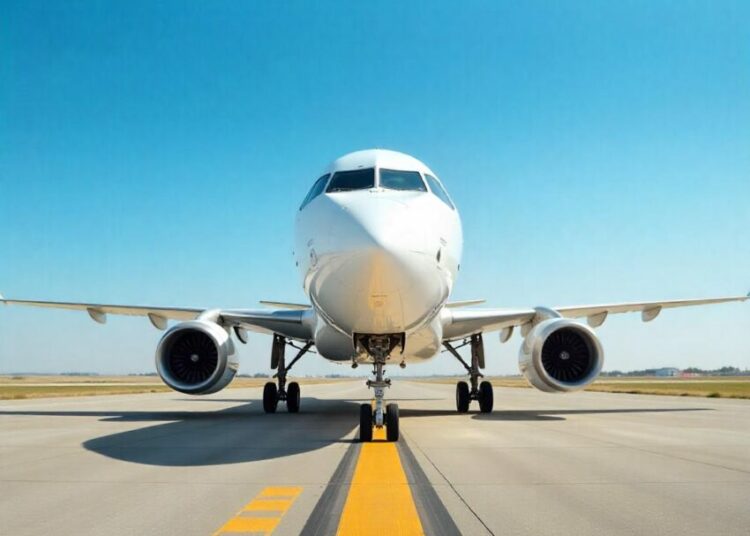Regional cooperation in the aviation sector is gaining increasing recognition as a crucial driver of connectivity, economic growth, and technological advancement across the globe.
To illustrate this, initiatives such as the Single African Air Transport Market (SAATM) and the European Single Sky programme demonstrate how coordinated policies can dismantle barriers, enhance efficiency, and improve service delivery.
For example, the European Union’s integrated airspace has led to a 5 per cent reduction in flight delays and saved approximately 4.8 billion euros annually in air traffic management costs.
However, in spite the launch of SAATM in 2018, its implementation in Africa has remained limited.
As of 2024, only 21 of the continent’s 54 countries have fully committed to the initiative, restricting its impact on improving intra-African air connectivity.
In addition to airspace liberalisation, infrastructure and safety remain central to regional aviation efforts.
While Europe benefits from harmonised safety regulations under the European Aviation Safety Agency (EASA), Africa continues to face major challenges.
According to the International Civil Aviation Organisation (ICAO), the continent recorded 2.9 accidents per million departures in 2023, more than double the global average of 1.3.
Moreover, Sub-Saharan Africa alone requires over 25 billion dollars in aviation infrastructure investment by 2030 to meet projected demand.
Nevertheless, efforts by institutions such as the African Development Bank and ICAO are gradually bridging this gap by supporting airport expansion and safety improvements across the region.
Equally important is environmental sustainability, which is receiving growing attention.
Regional green initiatives, including the African Civil Aviation Commission’s Environmental Strategy (2024–2030), aim to promote carbon offsetting, renewable energy use at airports, and the adoption of eco-friendly aircraft technologies.
These cooperative actions are essential for aligning Africa’s aviation sector with global climate goals.
Analysts note that regional progress often hinges on the collective efforts of governments, airlines, airports, and research institutions, all working together to enhance infrastructure, reduce emissions, and improve passenger experience.
This emphasis on collaboration was reinforced at the recently concluded 18th Plenary and Meeting of the Council of Ministers of the Banjul Accord Group (BAG) in Abuja.
It is worth noting that the Banjul Accord Group was established to foster sub-regional collaboration in the development of safe and sustainable civil aviation systems in West Africa.
This initiative aligns with the standards and recommended practices of the ICAO.
Speaking at the event, Nigeria’s minister of aviation and aerospace development, Mr Festus Keyamo, reiterated the urgency of implementing SAATM.
According to him, the initiative holds the key to enhancing regional integration and boosting intra-African air connectivity.
“Improving air connectivity within Africa will significantly reduce travel time, lower costs, and improve passenger satisfaction.
“SAATM represents a bold and visionary step towards achieving the African Union’s Agenda 2063 and unlocking the immense potential of air connectivity across our continent,” he said.
Albeit various declarations of political will, the minister acknowledged that progress on SAATM has been slow.
He cited continued airspace fragmentation as a major obstacle to regional integration.
He, therefore, stressed that full implementation of SAATM would enable seamless movement of passengers and cargo, minimising transit delays and encouraging competitive pricing.
Keyamo called on member states to move beyond verbal commitments and take deliberate, coordinated steps to bring the initiative to life.
“Our skies must no longer be defined by closed borders, but by open opportunity,” Keyamo declared, reaffirming Nigeria’s commitment to the ideals of BAG.
In his remarks, the director-general of the Nigerian Civil Aviation Authority (NCAA), Capt. Chris Najomo, said the meeting was aimed at strengthening collaboration on safety, security, regulatory harmonisation, and sustainable development.
Najomo restated Nigeria’s support for BAG’s objectives, as well as ICAO’s No Country Left Behind initiative, which seeks to ensure inclusive participation of all states in global aviation standards.
“Let us keep our eyes on the prize, a safe, secure, and unified aviation sector in West Africa,” he urged.
Similarly, BAG Director-general, Mr Fansu Bojang, noted that the group currently comprises seven member states— Cape Verde, The Gambia, Ghana, Guinea, Liberia, Nigeria, and Sierra Leone.
He explained that BAG was established to promote safe and efficient civil aviation development across the sub-region.
This is facilitated by specialised agencies such as the Banjul Accord Group Aviation Safety Oversight Organisation (BAGASOO) and the Banjul Accord Group Accident Investigation Agency (BAGAIA), which oversee safety and compliance.
As part of the plenary’s recommendations, Bojang disclosed that the group had proposed the introduction of a $1 Passenger Safety Charge (PSC) on all international departing flights.
This measure, he insists is intended to improve funding and strengthen regulatory capacity.
“BAG has faced persistent funding challenges due to delays and defaults in member states’ annual contributions. Nigeria has remained the group’s main financier.
“The introduction of the $1 PSC is seen as a sustainable funding mechanism for BAG, BAGASOO, and BAGAIA. Member contributions will be phased out once the PSC is fully operational,” he added.
In addition, the plenary welcomed expanded support from EASA.
It noted that EASA’s funding commitment to BAG had increased from five to 10 million euros, with members encouraged to fully leverage the assistance.
Going forward, the meeting resolved that member states should continue to sensitise their national airlines and aviation service providers on the importance of joining BAG to foster deeper collaboration across the sector.
In a major development, Keyamo was appointed Chairman of the BAG Council of Ministers.
In his new role, he is expected to provide strategic leadership for driving regional cooperation, harmonising aviation policies, and implementing key initiatives to advance safety, efficiency, and development in the BAG region.
Notably, the Abuja meeting also featured high-level discussions on shared air transport challenges, capacity building, infrastructure development, and enhancing regional connectivity.
Aviation stakeholders emphasise that full implementation of SAATM and stronger regional collaboration are vital for improving connectivity and economic integration in Africa.
They also support sustainable funding and harmonised regulations to build a safer, more efficient, and competitive aviation sector. NAN





